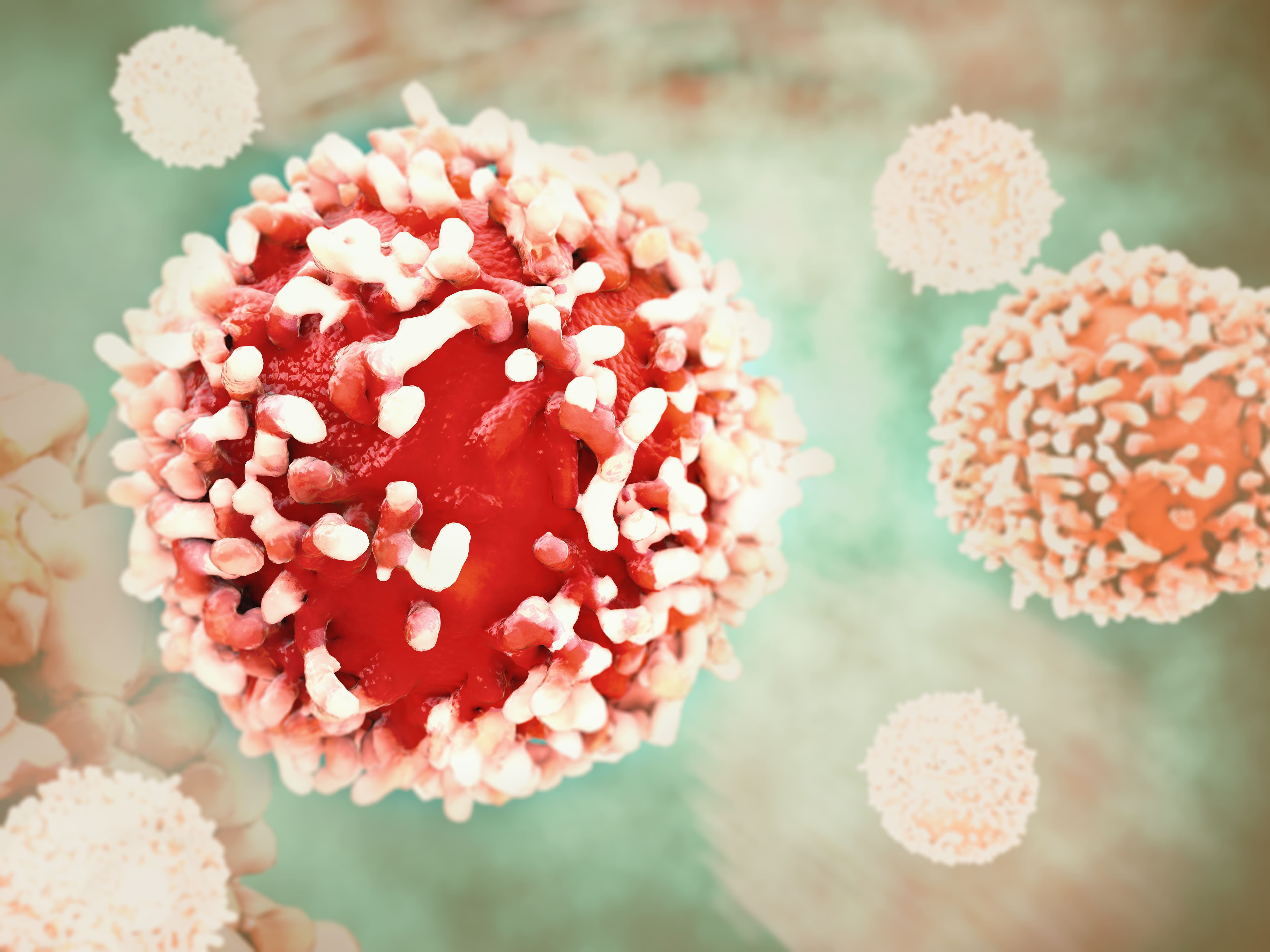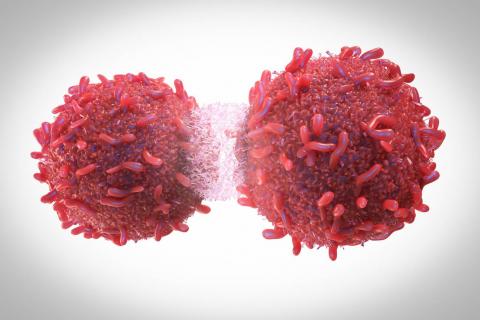Reactions to study that identifies cells responsible for colon cancer relapse
Research to be published in the journal Nature identifies and characterizes the cells responsible for relapse in colon cancer. In addition, it proposes revising clinical guidelines and administering immunotherapy before surgery to try to avoid them

Espinosa - Recaídas Colon (EN)
Lluís Espinosa
Coordinator of the Research Group on Molecular Mechanisms of Cancer and Stem Cells at IMIM-Hospital del Mar
The study by Dr. Eduard Batlle's group is of high scientific and clinical quality and relevance. The work identifies for the first time a single population of tumor cells (which they call CRH) that expresses most of the markers of poor prognosis in patients. Furthermore, this work demonstrates that a small number of these HRC cells may already be present in distant organs such as the liver at the time of surgery and are responsible for producing the metastatic lesion. More importantly, elimination of the HRC cells is sufficient to prevent the generation of metastases after surgery. The fact that this cell population may be sensitive to immunotherapy suggests that the results obtained will have a major impact on clinical practice in the very short term.
Schuhmacher - Recaídas Colon (EN)
Alberto J. Schuhmacher
ARAID researcher and head of the Molecular Oncology Group at the Aragón Health Research Institute (IIS Aragón)
This work may represent a before and after in the understanding of metastatic colon cancer. Cancer is an organized cellular crime. For several years now we have known that not all cells within a tumor are the same, that they have hierarchies and can perform different and complementary tasks. Thanks to novel technologies that make it possible to study within a tumor which genes are turned on or off cell by cell, individually, this team of Spanish scientists led by Eduard Batlle has identified cells with a high capacity for relapse that are responsible for the appearance of metastasis in the liver and lung when the primary tumor was thought to be localized and had been completely extirpated.
These cells are very rare and this work alerts us that they are disseminated in many patients in whom we might think that their tumor was very localized and had been removed with surgery and current treatments.
This study describes the genetic characteristics of these cells with a high capacity for relapse, which will allow us to understand their peculiarities, develop diagnostic methods and also find their vulnerabilities in order to develop new therapies. In this aspect, Batlle's team has taken a big step forward. They have developed experimental models in mice that mimic the tumor and the clinic (surgery and current treatments). These models make it possible to study them, to know them well in order to be able to attack them, and they have discovered that they can be sensitive to immunotherapy in the early stages, when the tumor was still thought to be localized, before operating and starting current treatments.
At that time, these cells that have already spread have not adapted the microenvironment to protect themselves. This contribution can be a revolution and raises a revision of the clinical guidelines in the treatment of this type of cancer because, in many cases, the application of neoadjuvant immunotherapy [before surgery] or future treatments aimed at attacking these cells should be considered.
Curing is more urgent than understanding, but in order to cure it is necessary to understand. This work provides knowledge to understand and avoid the phenomenon of relapse in colon cancer patients with localized disease at the time of diagnosis. At the same time, it opens the door to the design of new diagnostic methods and treatments. There is still work to be done to understand what causes these cells with a high capacity for relapse, once they have traveled to the liver or lung, to become active and form metastases. We still need to understand how these cells originate, what determines their number and why their number varies between patients.
This work reminds us that we are living in a decisive moment in oncology research in which technology and a level of knowledge are being achieved that allows us to confront many types of cancer. This work demonstrates, once again, that in Spain we have top-level researchers capable of making scientific advances of the highest level and impact if the necessary support is provided. The elaboration of a National Cancer Research Plan is urgent and cannot be postponed. Either we invest now or we will pay the consequences.
Melero - Recaídas Colon (EN)
Ignacio Melero
Professor of Immunology at the University of Navarra, CIMA researcher and co-director of the Department of Immunology and Immunotherapy at the Clínica Universidad de Navarra.
This is an excellent experimental study using mouse tumor organoids implanted in the colon to metastasize to the liver. Interesting observations are made about malignant cells capable of nesting and thriving in the liver. In the final part, micrometastases are analyzed, and it is found that these micrometastases are sensitive to immunotherapy, as they have not yet formed an immunosuppressive environment to protect them.
This is an experimental study in an animal model. It advocates clinical trials in which preoperative immunotherapy is applied to colon cancer patients, especially those at high risk of having micrometastases. We do not know whether these findings will be confirmed and what the risk-benefit balance of immunotherapy will be. What we already know from recent publications is that preoperative immunotherapy in the subgroup of colon cancer patients with damage to the DNA repair mechanisms (approximately 15-20% of cases) frequently results in the disappearance of tumor cells in the surgical specimen.
As for the most important limitations, there would be the adverse effects of the combination of checkpoint inhibitors [immune checkpoint inhibitors]. Although it is a very interesting model, it may not faithfully reflect the immunology of micrometastases in patients.
Santos - Recaídas (EN)
Cristina Santos
Medical Oncologist at the Catalan Institute of Oncology (ICO
The study carried out by Dr. Eduard Batlle's team is of very high quality. From the generation of murine models [in mice] of colon cancer and tumoroids derived from these, and using very advanced molecular biology techniques and next-generation sequencing techniques, they identify a population of tumor cells that they call HRC and that would be responsible for the appearance of metastasis. In order to track these cells and eliminate them, they identify the EMP1 protein as a marker to follow. Thus, using colorectal cancer tumor models in mice, they demonstrate that the elimination of this population of HRC cells makes the generation of metastasis disappear in mice. In addition, they show that micrometastases, which are enriched in CRH cells, have a greater infiltration of T lymphocytes, suggesting that the use of immunotherapy in early stages could significantly improve the evolution of colon cancer patients.
This work provides evidence, based on preclinical models, of the potential role that immunotherapy could have in the most common colorectal tumors, which are tumors with microsatellite stability where, so far, the use of immune checkpoint inhibitors (ICIs) has not shown clinical benefit. It is now known that these drugs are effective in the treatment of colorectal cancer with microsatellite instability, both in metastatic disease and in localized disease, as has recently been reported in studies with ICIs in neoadjuvant therapy (before surgery on the primary tumor). Following this line, and after the observations made in this work, the authors propose as a new therapeutic strategy, to be validated in clinical trials, neoadjuvant treatment with ICIs in patients with localized colon cancer.
These new therapeutic strategies would have to be validated in the corresponding clinical trials. These trials would have to provide answers to several unknowns: optimal treatment duration, treatment window, benefit in terms of the pathological response of the primary tumor, recurrence rates, survival... If effective, they would have a major therapeutic implication, since they would modify the current standard of treatment, based on surgery for resection of the primary tumor and subsequent adjuvant chemotherapy in patients at risk.
This is, therefore, a basic biology work that identifies this HRC population of residual cells, a population that is also found in the tumors of patients, as the authors demonstrate, and which opens the door to testing new therapeutic strategies to improve the treatment of colorectal cancer patients. The major limitation is that we now have to take the step to the clinic by performing the corresponding clinical trials that will allow us to validate this approach.
Élez - Recaídas (EN)
Elena Élez
Oncologist at the Colon Cancer Unit of Vall d'Hebron Hospital.
This is a study that aims to answer a clinically relevant question in colon cancer, which is the reason why some tumors relapse even if they are surgically treated. It is also a solid research carried out by a consolidated group.
The results of this research could form the basis for developing prospective clinical trials aimed at answering this hypothesis [that immunotherapy before surgery would improve prognosis], which must be confirmed before being implemented in clinical practice.
The main limitation is that this is preclinical work. It assumes a basis, but it is still very incipient for its applicability.
Cañellas-Socias et al.
- Research article
- Peer reviewed
- Experimental study
- Animals



